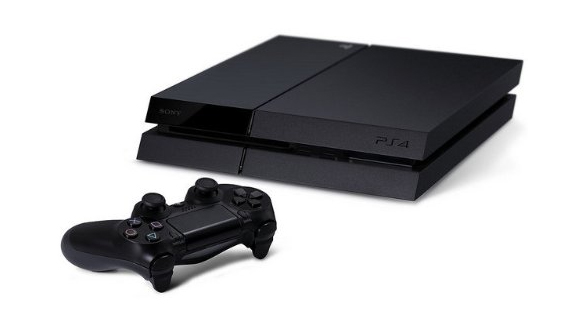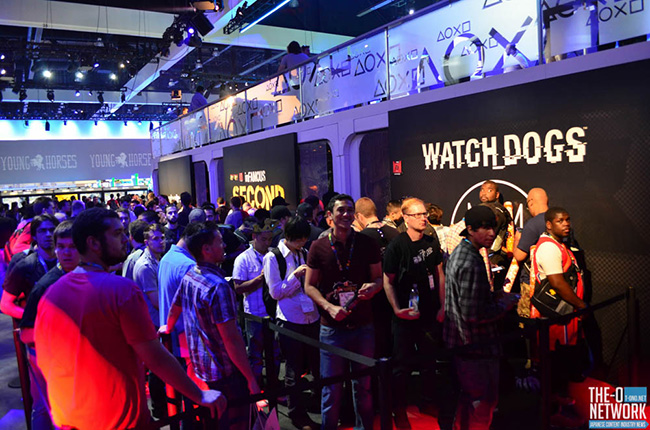
Plenty was revealed at Sony's press conference at E3. But without a doubt the most anticipated news revolved around the company's next generation console - the PlayStation 4 (PS4). Promised to be shown for the first time, how would the aesthetic design of the external hardware fair? How about the price of the system? Would it be competitive with Microsoft's Xbox One and be reasonable for consumers? As I awaited the start of the conference, eying a laptop screen from my living quarters, my adrenaline was already running high to say the least. And as things unraveled throughout the evening, my state of enthusiasm from the get-go had complimentary reasons to be so. Read more.
For the first time, since being announced back in February 2013, the PS4 was revealed to the world. At first glance, the external hardware appeared to be a minimalistic box design, maintaining the black shade that has become iconic to the PlayStation brand. The body, slim. Yet what gave the overall look that layer of depth can be attributed to the crevices being engraved onto the console and the surfaces bearing dynamic angles. The culminating experience, then, was far from being unimaginative as the system reverberated excitement. In the end, only one word came to my mind when describing the appeal of the PS4 - slick.
In terms of price, the PS4 was suspected to fall within the range of $399 to $499 - the latter being the cost of the Xbox One. To the dismay of many, including myself, Sony did a big number by setting the price of the PS4 to $399. Aside from being significantly cheaper than the Xbox One, when the price was announced by Andrew House, President and Group CEO of Sony Computer Entertainment, I was taken back - that is in a good way. Given that the PS4 is a next generation console and its capabilities, the price is extremely reasonable. Granted, the console will not come with the Eye whereas its competitor, the Xbox One, will include the Kinect. But separating the PS4 from the motion detector accessory is a wise move on Sony's part because it gives consumers the freedom to dictate their gaming experience. Gamers who would like to build upon the experience that the PS4 could offer will buy the Eye. Conversely, those who do not seek that particular PS4 experience will not be forced into purchasing something that is impractical to them. All in all, the result is this: consumers are given choices and a starting console price that is both fair and easy on the eye. Sony, as such, is definitely going beyond in delivering a next generation of gaming that is both competitive in cost and pro-consumer in affordability and experiential control. And I, for one, appreciate and applaud Sony for the effort.
But perhaps the most prominent announcement made about the PS4 concerned itself with Digital Rights Management. For PS4 disc-based games, it will be the case where they do not have to be connected online to be played. And as far as used, hard-copied PS4 games go, no longer will they require online authentication to be played to its full content experience. Needless to say, these features were countermeasures to the Xbox One's DRM policies in which both online and used-games authentication are still called for. But more notably, when these announcements were made at Sony's press conference, an outburst of cheer fulminated from the audience. I, too, was thrilled by the features considering the options that owners of hard-copied titles used to have before online authentication became instituted in the gaming industry. As Jack Tretton (President and CEO of Sony Computer Entertainment of America) simply put, "when a gamer buys a PS4 disc, they have the rights to use that copy of the game". What this translate to is resale, trade, and lending value. People who play games before redistributing them back to the market will be able to do so at a decent price. People will be able to swap ownership of titles without the fear of unavailable game content. And last but not least, people will be given the opportunity to share gaming experience among peers as they loan titles back and forth. Each of these interest, in and of itself, contributes to a dimension of gaming that should be made available to everyone to partake in. Doing so promotes gaming because it encourages people to play a role in game circulation as they network with the market, their community, family members, and friends. And in all honesty, as a gamer, who would not want to stumble across an original Final Fantasy VII at a GameStop or The Legend of Zelda: A Link to the Past at a local flea market? Sony's willingness to listen to gamers and be consumer-friendly is certainly a nice change of pace and will go a long way, advocating gaming both on and off the screen.

For those interested in third party relations, Sony's integration of indie games is just as compelling to own a PS4. The amount of exposure that the conference gave to independent developing studios is encouraging for aspiring game designers, including myself. By welcoming various developers such as Klei Entertainment, 17bit Games, and Red Barrels to the Sony family, I am looking forward to the assortment of games that will be debuting on the PS4 and the innovation and creativity behind them - the type of innovation and creativity that I believe will play pivotal roles in the longevity of the PS4. Third party relations undoubtedly assist in those regards with the influential caliber they bring to the table. Put it this way. When I think of Nathan Drake from Naughty Dog's Uncharted franchise, I question why I have not picked up Indonesian as a language. I suppose "buka pintu" will do for the time being.
With all that has been mentioned thus far, the PS4 seems to be at the top of the to-buy list when it is released later this year. But what about the games, themselves? Many blockbuster exclusives to the console were left unrevealed at the conference, leaving The Order 1886 from Ready at Dawn Studios the lone highlight in that regard. However, the world gameplay premiere of Destiny from Bungie did make its debut and it did not disappoint. Other notable showcases include a trailer of ZeniMax Online Studios' The Elder Scrolls Online and Ubisoft's Watch Dogs. At the heart of the matter, however, what sent my otaku meter into overdrive was the announcement of long-awaited title Final Fantasy Versus XIII, which has been renamed to Final Fantasy XV according to the trailer shown. Riding the momentum, Square Enix shocked many thereafter by unveiling Kingdom Hearts III to the world. I, on the other hand, was foaming at the mouth. For some JRPG fans, these two installments alone will be persuasive enough to be owners of one of the two next generation consoles without hesitation - the theory perhaps favoring the PS4 based on said quality of the system covered in this article. But platform aside, having waited for Final Fantasy Versus XIII for so long and Kingdom Hearts III even longer, the amount of joy from just knowing they are in the works made me come to realize how much I love each franchise. Excuse me while I twirl my keyblade to the Final Fantasy fanfare.
Who knows the number of people who have already pre-ordered the PS4 on Amazon when the online retailer made it available after Sony's press conference. But one thing is for sure: the gaming future is potentially bright for the PS4, especially when the company behind it not only embraces its fans but also reaches out to those very fans who have become a third party contributor. With a favorable price, favorable features, and favorable games, I simply cannot resist raising my elixir. Here's to the PS4.
